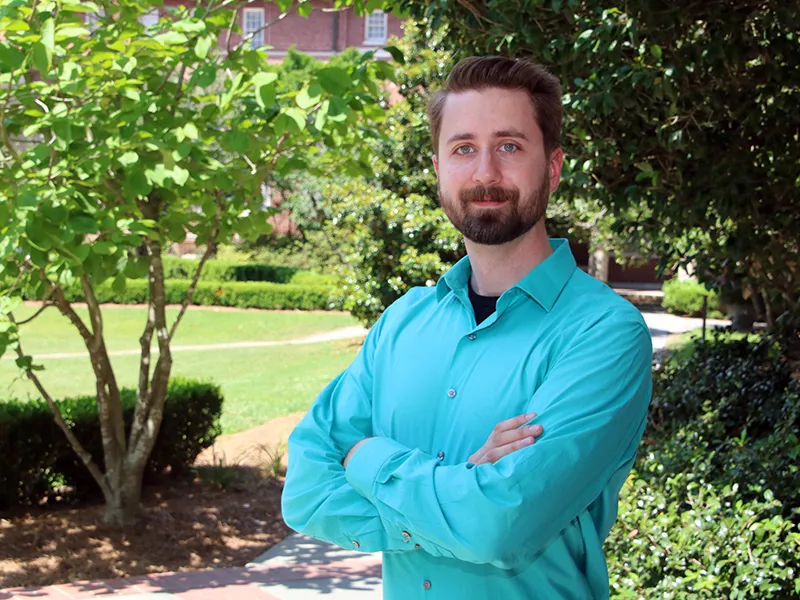
Michael Spanbauer began his Tulane School of Liberal Arts PhD in 2013 with the promise of receiving individual attention from faculty and experiencing the spirit of camaraderie among the students. After a half-decade of government policy research steeped in collaborative engagement within the Department of Economics, the newly minted PhD is excited to begin the next chapter of his career at the National Strategic Planning and Analysis Research Center (NSPARC) at Mississippi State University.
While at Tulane, Spanbauer researched the effects of government policies and initiatives. In particular, he assessed the cost of human life based on Stand Your Ground policies. “Stand Your Ground policies give legal protections to people who use lethal force to defend themselves from an attacker. Without Stand Your Ground, people can only use lethal force if they are unable to safely retreat from the alleged criminal,” said Spanbauer.
Spanbauer’s research indicates that these policies increase the killings of white alleged criminals by approximately 3% while increasing the killings of black alleged criminals by approximately 18%. In addition to garnering over $76,000 in grant funding and $88,000 in fellowship funding throughout his academic career, Spanbauer’s analysis of Stand your Ground policies has been supported by critics’ claims that the black community disproportionately bears the burden of the policy’s cost to human life.
When Spanbauer begins his new position as a Postdoctoral Research Fellow at NSPARC in June, he will work closely with the Deputy Executive Director to coordinate data management and analysis activities. NSPARC uses artificial intelligence and high-performance computing, among other things, to develop innovations with the overall goal of furthering human progress.
Spanbauer believes that his Tulane education was a major factor in being selected to join NSPARC’s team. “Not only has Tulane’s Department of Economics educated me on economic theory but also they have taught me how to present my findings so that my research can be utilized by community leaders in the formulation of public policy,” said Spanbauer.
“I came to Tulane with the goal of helping to shape my community, and I am leaving Tulane with publishable research that could potentially reshape the policies of state governments across the country.”

